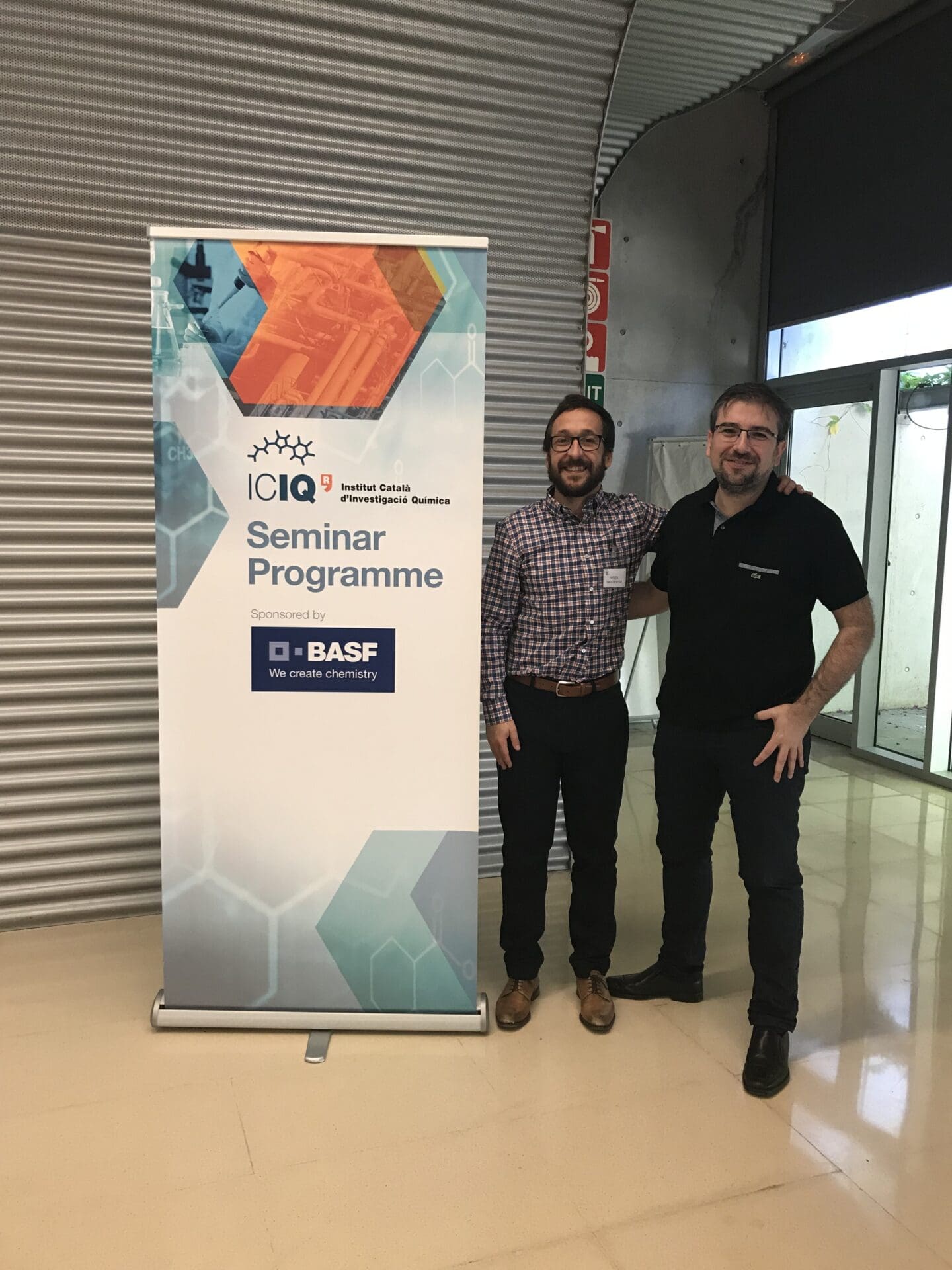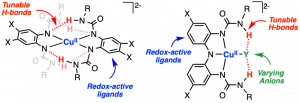
 12/07/2019
12/07/2019
 12:00 h
12:00 h
- Lecturer: Prof. Isaac Garcia Bosch
- University: Southern Methodist University, Dallas (USA)
- Sponsored by:

Copper Complexes Bearing Redox Active Ligands with Tunable H-Bonding Donors
In this seminar presentation, I will describe the recent findings from our research group on the development of copper complexes bearing redox-active ligands with tunable H-bonds. These copper coumponds are stabilized via intramolecular H-bonding interactions, which can be modulated by changing the metal ion, by ligand modification, solvent of crystallization or anions used in the synthesis. We observed that these Cu complexes adopt various metastable oxidation states via oxidation/reduction of the metal center and/or the ligand scaffold. The copper complexes were also found to catalyze the aerobic oxidation of alcohols under mild conditions. Mechanistic studies suggest that these galactose-oxidsase model systems perform the oxidation of alcohols in an unprecedented fashion.
Other events

Let's create a brighter future
Join our team to work with renowned researchers, tackle groundbreaking
projects and contribute to meaningful scientific advancements





















